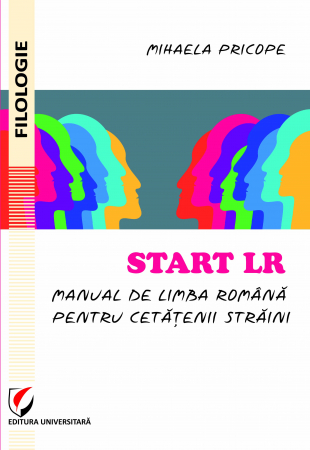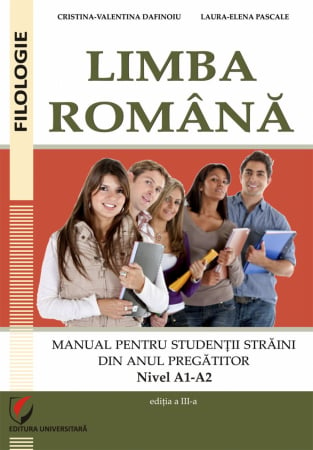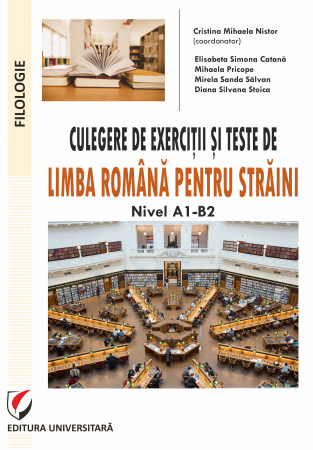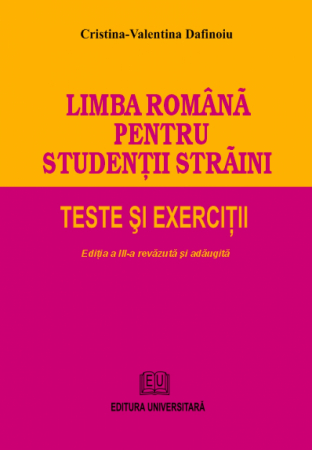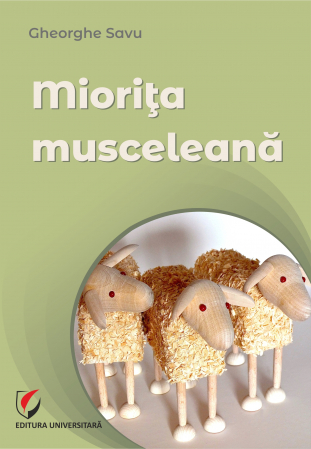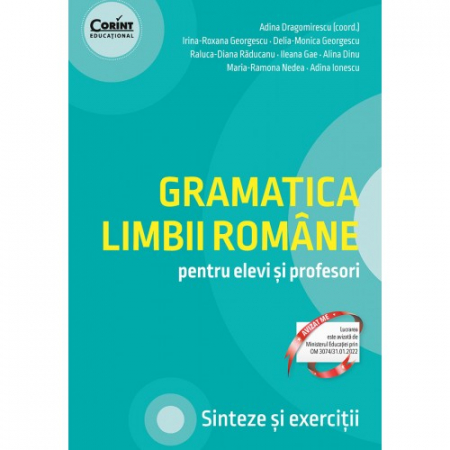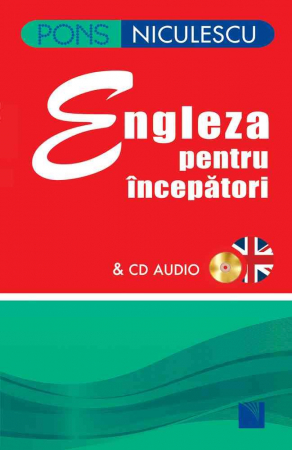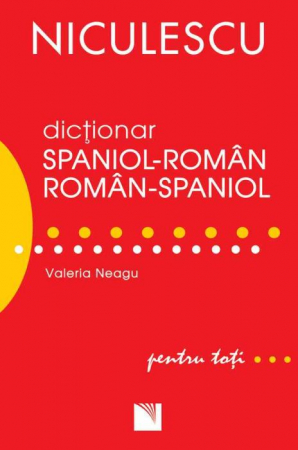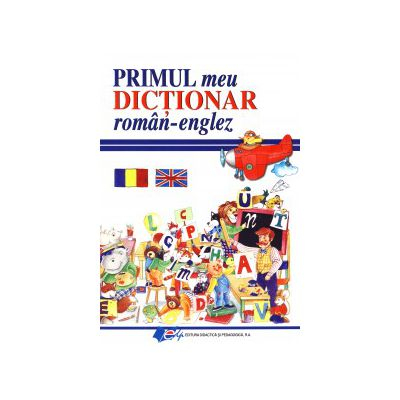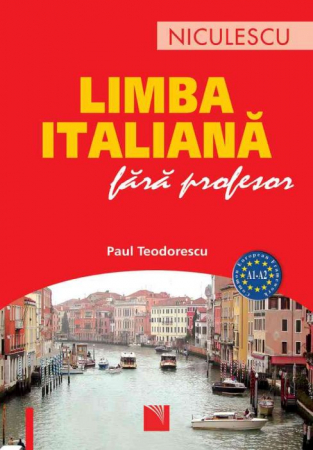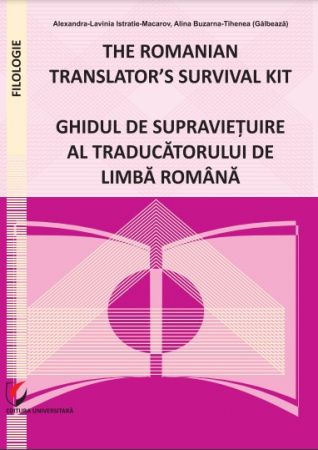Manuscript proposals: [email protected] / 0745 204 115 //// Tracking orders Individuals / Sales: 0745 200 357 / Orders Legal entities: 0721 722 783
6359.png) How well do I know Romanian? 8 language proficiency tests for non-native Romanian speakers - Silvia Osman, Anamaria Pavel
How well do I know Romanian? 8 language proficiency tests for non-native Romanian speakers - Silvia Osman, Anamaria Pavel
6359.png)
Publisher: Editura Universitară
Author: Silvia Osman, Anamaria Pavel
Edition: I
Pages: 124
Publisher year: 2023
ISBN: 978-606-28-1696-4
DOI: https://doi.org/10.5682/9786062816964
Product Code:
9786062816964
Do you need help?
0745 200 357
- Description
- Authors
- Content
- More details
- Reviews (0)
You have here, among the covers of the volume from the series How well do I know Romanian?, a collection of 6 language proficiency tests for non-native Romanian speakers, designed according to the evaluation criteria (CEFR) already established for TOEFL or IELTS type tests, for the English language , DELE for Spanish or DELF for French. In addition, I have included 2 special tests, for the C1/C2 level, which delicately underline the subtleties that a Romanian speaker of this level needs to know, to be able to use in written and spoken language, in communication oral, in order to succeed in demonstrating (and passing) a threshold of knowledge appropriate to this level. Using these tests (and texts) as a pretext for learning, you have the opportunity to perfect your knowledge to the level you want, to permanently understand where you are in this interesting journey that, sometimes, can last a lifetime and to always discover something new along the way.
Lecturer Dr. Silvia Osman
Lecturer Dr. Silvia Osman
SILVIA OSMAN
ANAMARIA PAVEL
ANAMARIA PAVEL
Between book and virtuality in quality learning / 9
Test 1. Grammatical structures and vocabulary / 15
Test 2. Grammatical structures and vocabulary / 30
Test 3. Grammatical structures and vocabulary / 45
Test 4. Grammatical structures and vocabulary / 61
Test 5. Grammatical structures and vocabulary / 78
Test 6. Grammatical structures and vocabulary / 93
Test 7. Language proficiency test – Level C1 / 110
Test 8. Language proficiency test – Level C1 / 116
How well do I know Romanian? / 122
Test 1. Grammatical structures and vocabulary / 15
Test 2. Grammatical structures and vocabulary / 30
Test 3. Grammatical structures and vocabulary / 45
Test 4. Grammatical structures and vocabulary / 61
Test 5. Grammatical structures and vocabulary / 78
Test 6. Grammatical structures and vocabulary / 93
Test 7. Language proficiency test – Level C1 / 110
Test 8. Language proficiency test – Level C1 / 116
How well do I know Romanian? / 122
Whoever we ask, I'm sure they would confirm the idea that we all tend to learn best from our own mistakes. Better and faster, I would add, with a slight irony. Why wouldn't we, then, simply take advantage of some tests to assess the level of linguistic proficiency, which seem difficult, perhaps even insurmountable, at the beginning, in order to perfect our knowledge, polish our vocabulary, etc. checking what and why we don't know yet, in this context? Why wouldn't we then use such evaluation tests (and) as a pretext for learning, understanding what our weak points are and then identifying the steps to follow in further preparation?
This is the idea from which this small collection of tests to assess the knowledge of the Romanian language for foreigners, designed to determine the level of linguistic proficiency of non-native speakers of the Romanian language, according to the general pattern of the CEFR (Common European Framework of Reference ) so well known by anyone who speaks (at least) one foreign language. How well do I know Romanian? contains difficult but correct tests. It raises alarm signals for ... ignorance. Using these evaluation tests as a pretext for learning would be as if we choose (consciously) to prevent ourselves from the upper threshold, in order to be able to see, isn't it, the lower one. Why not? This versatility exercise represents a challenge, in equal measure, both for the person studying the Romanian language and for the teacher, but the results, I assure you, will not be long in appearing and the progress will be inherent.
Any text, I have noticed in the long years of experience at the department, is a good pretext for learning. If we manage to discipline our thinking so that we look at a challenge as an experience rather than as a lesson or severe test, we can discover what we don't know yet and get to work. If we look at the experience itself with the revelation of discovery, rather than considering it the end of the country, we are rapidly approaching learning a foreign language, enjoying the journey and preparing for success. Of course, the destinations are important and so are the results. But why not enjoy the journey too, i.e. of the learning process, equally, all this time?
I suggest you get caught up in this game of knowledge of the Romanian language, in the depth of its grammatical constructions and proverbs, idiomatic expressions, stories and archetypes of this ancient area, if you want to understand well not only the language of this people, but also a thanks to the beauty of its culture!
You have here, between the covers of the volume How well do I know Romanian?, a collection of 6 language proficiency tests for non-native Romanian speakers, designed according to the evaluation criteria already established for TOEFL or IELTS type tests, for English, DELE for Spanish or DELF for French. In addition, I have included 2 special tests, for the C1/C2 level, which delicately underline the subtleties that a Romanian speaker of this level needs to know, to be able to use in written and spoken language, in communication orally, in order to be able to demonstrate (and pass) a threshold of knowledge appropriate to this level. Often, only an educated native, well versed in the Romanian language, can complete these tests without mistakes. So please don't be discouraged! Tests 7 and 8 are also a challenge for natives. Using these tests (and texts) as a pretext for learning, you have the opportunity to perfect your knowledge to the level you want, to permanently understand where you are in this interesting journey that, sometimes, can last a lifetime and to always discover something new along the way.
The various exercises, for evaluating grammatical and vocabulary structures, or for understanding the written text (contained in this volume), doubled by original listening tests, interview and oral communication or creative writing tasks (from the academa website .ro), all offer the possibility of testing the knowledge of the Romanian language accumulated over time, because they are doubled by an appropriate scale for their summative evaluation.
The possibility of using these tests as a pretext for learning confirms their versatility, and the simple pattern to follow can easily represent a replicable model for the Romanian language teacher for foreigners, when he wants to create at any time, himself, a sum of such evaluation tests, from time to time, when he considers it appropriate to evaluate the progress of his students.
I have always had immense respect for all those who choose to study the Romanian language as a foreign language, because, isn't it, the Romanian language is spoken in a small area, by a relatively small population. It is, for me, extremely honorable to teach my native language to people eager to know it and understand its subtleties, and I have always done everything I knew best to facilitate and support this course. I really appreciate their time and effort! I wish that the results that their work and hard work deserve will not be late in showing themselves and I wish them to learn easily and well and to enjoy every stage of this process. A good thought also to the fellow teachers who choose to join us and offer guidance to those who decipher, at the beginning of the journey, the Romanian language. Good luck everyone!
Lecturer Dr. Silvia Osman
Bucharest, 2023
This is the idea from which this small collection of tests to assess the knowledge of the Romanian language for foreigners, designed to determine the level of linguistic proficiency of non-native speakers of the Romanian language, according to the general pattern of the CEFR (Common European Framework of Reference ) so well known by anyone who speaks (at least) one foreign language. How well do I know Romanian? contains difficult but correct tests. It raises alarm signals for ... ignorance. Using these evaluation tests as a pretext for learning would be as if we choose (consciously) to prevent ourselves from the upper threshold, in order to be able to see, isn't it, the lower one. Why not? This versatility exercise represents a challenge, in equal measure, both for the person studying the Romanian language and for the teacher, but the results, I assure you, will not be long in appearing and the progress will be inherent.
Any text, I have noticed in the long years of experience at the department, is a good pretext for learning. If we manage to discipline our thinking so that we look at a challenge as an experience rather than as a lesson or severe test, we can discover what we don't know yet and get to work. If we look at the experience itself with the revelation of discovery, rather than considering it the end of the country, we are rapidly approaching learning a foreign language, enjoying the journey and preparing for success. Of course, the destinations are important and so are the results. But why not enjoy the journey too, i.e. of the learning process, equally, all this time?
I suggest you get caught up in this game of knowledge of the Romanian language, in the depth of its grammatical constructions and proverbs, idiomatic expressions, stories and archetypes of this ancient area, if you want to understand well not only the language of this people, but also a thanks to the beauty of its culture!
You have here, between the covers of the volume How well do I know Romanian?, a collection of 6 language proficiency tests for non-native Romanian speakers, designed according to the evaluation criteria already established for TOEFL or IELTS type tests, for English, DELE for Spanish or DELF for French. In addition, I have included 2 special tests, for the C1/C2 level, which delicately underline the subtleties that a Romanian speaker of this level needs to know, to be able to use in written and spoken language, in communication orally, in order to be able to demonstrate (and pass) a threshold of knowledge appropriate to this level. Often, only an educated native, well versed in the Romanian language, can complete these tests without mistakes. So please don't be discouraged! Tests 7 and 8 are also a challenge for natives. Using these tests (and texts) as a pretext for learning, you have the opportunity to perfect your knowledge to the level you want, to permanently understand where you are in this interesting journey that, sometimes, can last a lifetime and to always discover something new along the way.
The various exercises, for evaluating grammatical and vocabulary structures, or for understanding the written text (contained in this volume), doubled by original listening tests, interview and oral communication or creative writing tasks (from the academa website .ro), all offer the possibility of testing the knowledge of the Romanian language accumulated over time, because they are doubled by an appropriate scale for their summative evaluation.
The possibility of using these tests as a pretext for learning confirms their versatility, and the simple pattern to follow can easily represent a replicable model for the Romanian language teacher for foreigners, when he wants to create at any time, himself, a sum of such evaluation tests, from time to time, when he considers it appropriate to evaluate the progress of his students.
I have always had immense respect for all those who choose to study the Romanian language as a foreign language, because, isn't it, the Romanian language is spoken in a small area, by a relatively small population. It is, for me, extremely honorable to teach my native language to people eager to know it and understand its subtleties, and I have always done everything I knew best to facilitate and support this course. I really appreciate their time and effort! I wish that the results that their work and hard work deserve will not be late in showing themselves and I wish them to learn easily and well and to enjoy every stage of this process. A good thought also to the fellow teachers who choose to join us and offer guidance to those who decipher, at the beginning of the journey, the Romanian language. Good luck everyone!
Lecturer Dr. Silvia Osman
Bucharest, 2023
If you want to express your opinion about this product you can add a review.
write a review

![How well do I know Romanian? 8 language proficiency tests for non-native Romanian speakers - Silvia Osman, Anamaria Pavel [1] How well do I know Romanian? 8 language proficiency tests for non-native Romanian speakers - Silvia Osman, Anamaria Pavel [1]](https://gomagcdn.ro/domains/editurauniversitara.ro/files/product/large/cat-de-bine-stiu-romaneste-8-teste-de-proficienta-lingvistica-pentru-vorbitorii-non-nativi-de-limba-romana-127916.jpg)
